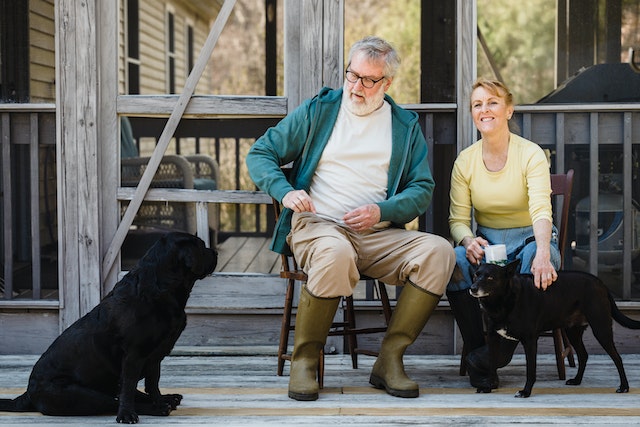High temperatures in Houston during June, July, and August often average 92-, 94-, and 95 degrees Fahrenheit, respectively. Sweltering weather can be more than uncomfortable; it can be downright dangerous. It is essential to be cautious and seek relief quickly when overheating. Exposure to high heat is even riskier if you are an older adult and/or have health problems. Otherwise, you might feel unwell more quickly and be at risk of heat-related illnesses that could cause serious health issues.
Hotter days can cause difficulty in the body’s ability to regulate its temperature, especially for older adults who are more likely to have chronic medical conditions that affect the body’s response to temperature, including heart and lung problems. If you’re caring for an older individual, take a few minutes to inventory their prescriptions. Some drugs can alter the body’s ability to control temperature or sweat. Frequent problem meds include high blood pressure drugs, diuretics, and sedatives.
Plan, prepare, and stay informed
The adage that knowledge is power applies to safety in hot weather. A thermometer, the weather app on your cellphone, and knowledge of the “heat index” are all part of your game plan. (The heat index is what the temperature feels like to the human body when the relative humidity is combined with the air temperature. It is an essential consideration for the human body, especially over 65.)
Here are a handful of specific tips:
- It may seem obvious, but make sure seniors stay hydrated. Water is great, but add fruit and vegetable juices for variety. Don’t wait until someone says they are thirsty before hydrating. By the time active thirst sets in, the body is already on its way to drying out.
- If air conditioning is unavailable, close blinds and curtains during the hottest times of the day. Luckily, about 99 percent of people in the Houston area enjoy the benefit of AC in their homes. However, it’s a key maintenance component to ensure air conditioning units are clean and well-maintained (it keeps costs down, also).
- Cool off by visiting a mall, movie, or air-conditioned senior center. Visit the Houston Health Department online for more information.
- Using broad-spectrum sunscreen whenever you’re outside can’t be overemphasized. It should be SPF 15 or higher. Ensure a hat, protective clothing, and sunglasses are always at the ready.
- Forego outdoor exercise or head for an indoor facility. An easy way to work out at home is with fitness offerings from AARP (the American Association of Retired People). YouTube videos are another easy (and free) source of fitness inspiration.
- When it’s time to head out for errands or other excursions, wait — if possible — until the weather cools down.
- And if a heat wave strikes, help arrange a “buddy system” for seniors. If one is not in place, help set up a check-in system with friends and family members to be confident that older adults are safe, comfortable, and not in need of any essentials.
- Do not leave children, senior citizens, or pets unattended in a vehicle.
As you likely know, many maladies can be avoided with proper preparation and planning. But it’s best, as always, not to be taken by surprise if trouble arises. Don’t underestimate the potential dangers. Seek medical treatment immediately if a senior displays any symptoms of heat-related illness, including vomiting, weakness, dizziness, or nausea.
The specifics: heat-related illnesses
The Centers for Disease Control and Prevention names and explains several kinds of heat-related illness, including heat cramps, heat edema, heat exhaustion, heat rash, heat stroke, or heat syncope (a fainting episode or dizziness that usually occurs when standing for too long or suddenly standing up after sitting or lying down.) Factors that may play a role in heat syncope are dehydration and the inability of the body to adjust to extreme heat and sunburn. Another potential problem is rhabdomyolysis, a medical condition associated with heat stress and prolonged physical exertion. It causes rapid breakdown, rupture, and death of muscle. When muscle tissue dies, electrolytes and large proteins are released into the bloodstream.
While hot-weather illnesses can be severe, remember that many can be avoided entirely or greatly minimized with proper planning. Sheila’s Angels is here to help. Contact us to learn about our care services.

